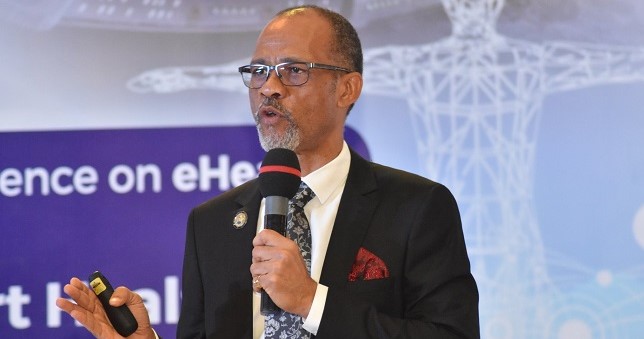Lagos State Commissioner for Health, Prof. Akin Abayomi, says no fewer than 700,000 people are being diagnosed annually with malaria disease in the state.

Abayomi made the disclosure in a statement on Sunday, April 25, 2021 in Lagos in celebration of the 2021 World Malaria Day (WMD).
The WMD is commemorated annually on April 25, to create awareness on the global burden of malaria, and to mobilise support for the Roll Back Malaria strategies.
The theme for 2021 World Malaria Day celebration is: “Zero Malaria – Draw the Line against Malaria’’ with the slogan; “Stand Up – Take Action”.
Abayomi said malaria accounts for more than 70 per cent of the outpatients in the state public healthcare facilities, with more than 700,000 malaria cases reported annually.
According to him, 657,154 patients with malaria were seen in the state’s private and public healthcare facilities in 2020.
“Malaria is prevalent in the vulnerable groups – children under five years and pregnant women where the infection can be profoundly more severe,” the commissioner said.
He said the state topography and ecological features, vast coastal terrain, rapid urbanisation and poor drainages were major predisposing factors that contributed to transmission of malaria all year round.
The commissioner said that the state government over the years had demonstrated continued commitment to the control of malaria through various strategies.
He listed the strategies as promotion of Long-Lasting Insecticidal Nets (LLINs) utilisation, prevention of malaria in pregnancy using Intermittent Preventive Treatment with Sulphadoxine Pyrimethamine.
According to him, others are prompt diagnosis in the public healthcare facilities, using malaria Rapid Diagnostic Test (mRDT) kits or microscopy.
Abayomi said that the state also used effective case management with Artemisinin-based Combination Therapy drugs (ACTs) for patients diagnosed with malaria.
He said that awareness and sensitisation activities on malaria; procurement and supply of antimalarial drugs and commodities to the state healthcare facilities was also deployed.
The commissioner said that the healthcare system strengthening and operational research was also utilised to control malaria in the state.
“There has been marked reduction in the cases of malaria globally (between 2010 and 2019 with decline from 71 to 57 cases per 1,000 population at risk).
“Nigeria has recorded a decline in malaria cases (from 42 per cent in 2010 to 27 per cent in 2015 and 23 per cent in 2018),” he said.
Abayomi said that the National Malaria Indicator Survey of 2015, Lagos State Malaria Indicator Survey of 2017 and National Demographic and Health Survey revealed that the prevalence of malaria was low in Lagos.
“Although, malaria prevalence is low in Lagos State, the burden is still high as over 700,000 people are diagnosed with the disease annually.
“It is, therefore, germane that we Stand up and Take Action against malaria. By taking actions, we would be curbing the spread of the disease,” the commissioner said.
He stressed the importance of sleeping inside Long-Lasting Insecticidal Nets (LLINs) to prevent malaria, especially for the vulnerable groups –pregnant women and children under five years old.
“Pregnant women are also encouraged to take Sulphadoxine Pyimethamine to prevent malaria in pregnancy from second trimester,” he said.
The commissioner said that diagnosis, using either malaria Rapid Diagnostic Test (mRDT) kit or a microscope must be done before using Artemisinin – based Combination Therapy (ACTs) for treatment of fever.
“This is because not all fevers are caused by malaria.
“Diagnosis of patients with fever using microscopy or mRDT kit prior to treatment of the disease improves the overall management of patients with fever.
“This is also very important at this time as people infected with SARS–CoV–2 virus, which causes COVID–19, manifest symptoms like malaria.
“The distinction between malaria and COVID–19 is made only after proper diagnosis using appropriate test kits,” he said.
Abayomi added that testing for malaria was essential to reduce unnecessary use of antimalarial drugs, thereby preventing the emergence and spread of drug resistance.
He said it would ensure that antimalarial drugs were reserved for those suffering from the disease.
“It is also imperative that all malaria cases diagnosed are recorded in the appropriate data tools to ensure that all cases of malaria in the state are duly reported,” he said.
The commissioner said that collective action for environmental management include effective refuse disposal and waste management and covering of water storage containers.
Others were clearing of drainage channels, dredging of canals and channels, among others.
“Unkempt and dirty environment serves as breeding sites for mosquitoes; hence proper maintenance and management of the environment would prevent mosquitoes from breeding,” he said.
Abayomi appealed to everyone to remain committed to collective efforts toward effective malaria control in the state.
By Oluwafunke Ishola
